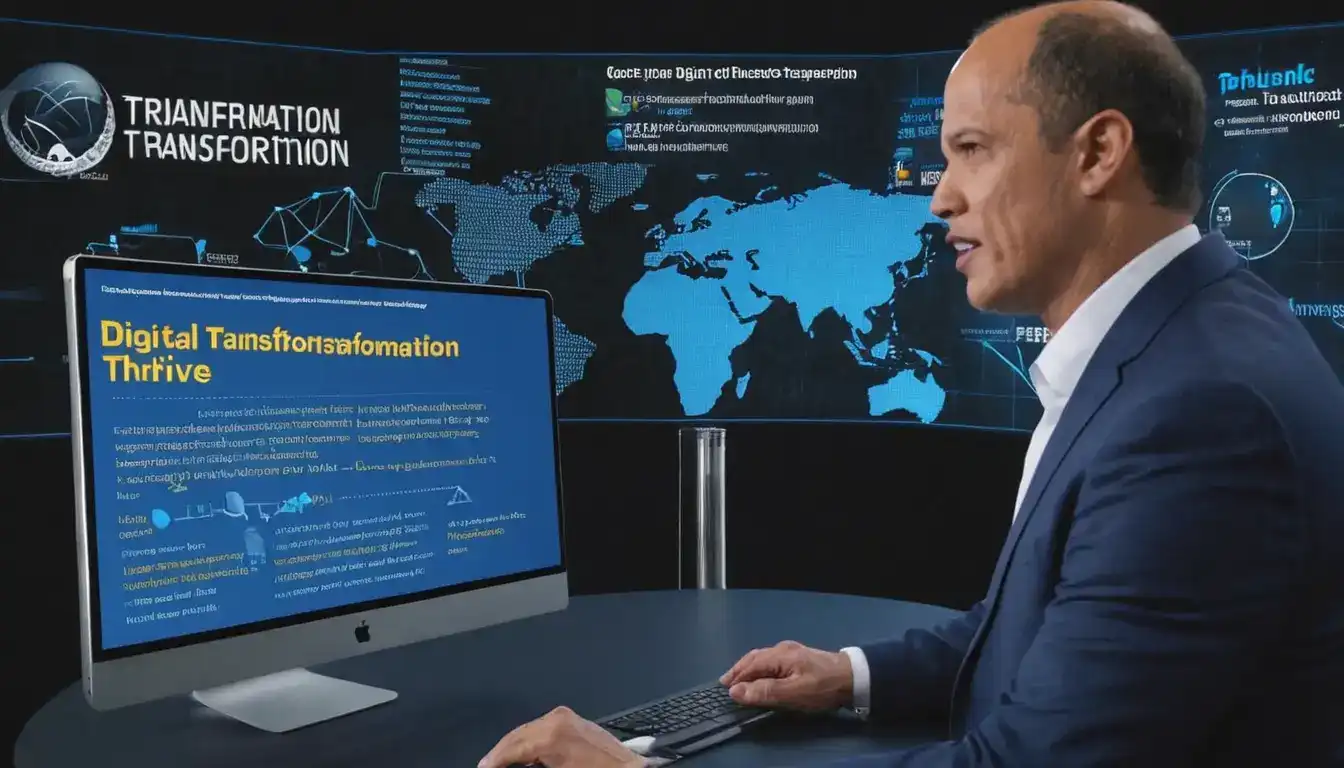Parents' Role in Shaping Future Education
Emily Willis

Photo: Parents' Role in Shaping Future Education
Parents' Pivotal Role in Shaping the Future of Education: A Comprehensive Guide
The world of education is constantly evolving, shifting from traditional models to dynamic, personalized learning experiences. In this exciting transformation, one group stands out as having an increasingly vital role: parents. Far from being passive observers, parents are becoming powerful architects of their children's educational journeys and, by extension, the future of learning itself. Research consistently demonstrates that children whose parents are actively engaged in their schooling tend to perform better academically, socially, and emotionally. This engagement goes beyond just homework help; it's about fostering a supportive learning environment, nurturing curiosity, and building resilience.
As the educational landscape continues to undergo a dynamic transformation, with a growing emphasis on personalized learning, critical thinking, and 21st-century skills, parents are becoming more aware of these changes. This article will explore the profound impact parents have on shaping future education, offering actionable insights and practical tips for every family to empower their children for success in a rapidly changing world.
The Evolving Landscape of Education: Why Parental Involvement Matters More Than Ever
The classroom of today looks vastly different from that of a generation ago, and the pace of change is only accelerating. Understanding these shifts is the first step for parents to effectively shape their child's educational journey.
Beyond Textbooks: A New Era of Learning
Gone are the days when education was solely about memorizing facts from textbooks. Modern education emphasizes critical thinking, problem-solving, creativity, and collaboration – skills that are essential for navigating an increasingly complex world. Employers today seek individuals who can apply these human-centric skills, often valuing them even more than specific technical knowledge. For instance, the ability to think critically and solve complex problems is listed by the World Economic Forum as a top future workforce skill.
The Digital Revolution and Its Impact
Technology has profoundly reshaped how we learn, access information, and connect with the world. Online learning platforms, digital textbooks, and educational apps are now integral to the learning process, affecting traditional teaching and learning methods. This digital revolution presents both opportunities and challenges. While technology offers powerful learning tools, it also requires parents to help children navigate online resources effectively, evaluate information critically, and maintain healthy boundaries around screen time. This digital literacy is a crucial "future-ready skill" that parents can help cultivate.
Parents as Primary Educators: Laying the Foundation at Home
Before children even step foot into a formal classroom, parents are their first and most influential teachers. The home environment lays a critical foundation for a child's educational development, influencing their attitudes toward learning and their readiness for school.
Cultivating a Love for Learning
One of the most powerful gifts parents can give their children is a genuine love for learning. This isn't about forced study sessions but about igniting curiosity and making learning an enjoyable, natural part of everyday life. Simple activities like reading together, discussing interesting topics, and exploring nature can foster this enthusiasm. Research shows that parental involvement positively impacts a child's academic performance, reinforcing the importance of education and building confidence.
Nurturing Essential Skills: Critical Thinking and Creativity
The skills most in demand for the future workforce—such as problem-solving, creativity, and critical thinking—are not just taught in schools; they are nurtured at home. Parents can encourage these skills through:
- Open-ended questions: Instead of providing immediate answers, ask "What do you think?" or "How could we solve this?" to encourage independent thought.
- Creative play: Provide opportunities for imaginative play, building, drawing, and storytelling. Creativity is a fundamental human skill that can be cultivated and taught.
- Problem-solving scenarios: Turn everyday challenges into learning opportunities. For example, if a toy breaks, involve your child in figuring out how to fix it. Children naturally exhibit problem-solving abilities early on.
The Power of Emotional Intelligence and Resilience
Beyond academics, parental involvement plays a crucial role in a child's emotional well-being and social skills. Children who feel supported at home are more likely to exhibit positive behavior, build healthy relationships, and develop resilience when facing challenges. Parents can foster emotional intelligence (EQ) by:
- Validating feelings: Help children understand and express their emotions in healthy ways. Emotional intelligence involves the ability to understand and manage one's own emotions and those of others.
- Teaching empathy: Encourage children to consider the feelings of others through discussions and role-playing.
- Building resilience: Allow children to make mistakes and learn from them, providing encouragement rather than immediate solutions. Cultivating a growth mindset, where effort is valued over immediate success, is key.
Navigating the Future: Equipping Children for Tomorrow's World
As parents, our goal isn't just to prepare children for the next school year, but for a future that is constantly evolving. This requires understanding emerging educational trends and advocating for learning experiences that truly prepare them for life.
Embracing Personalized Learning Paths
The concept of "one size fits all" education is fading. Personalized learning, which tailors educational experiences to meet each student's unique needs, strengths, and interests, is a significant trend in education. Parents can support this by:
- Understanding their child's learning style: Is your child a visual, auditory, or kinesthetic learner? Knowing this can help you support their learning at home and communicate effectively with teachers.
- Exploring diverse resources: Supplement traditional schooling with online courses, educational apps, and extracurricular activities that align with your child's passions.
- Advocating for individualized support: Work with schools to ensure your child receives tailored support, whether through differentiated instruction or specialized programs.
Understanding and Utilizing Educational Technologies
Technology is an undeniable force in modern education. Parents need to be digitally literate themselves to guide their children effectively. This means:
- Engaging with educational apps and websites: Use these tools to make learning fun and interactive, but always be involved in your child's online activities.
- Setting healthy screen time boundaries: While technology is valuable, balance is crucial. Excessive screen time can hinder learning, so establish reasonable limits.
- Teaching digital citizenship: Guide children on responsible online behavior, critical evaluation of information, and understanding privacy.
Advocating for Curriculum Modernization
Parents have a voice in shaping the broader educational system. By engaging with school boards and parent-teacher associations, you can advocate for curricula that prioritize future-ready skills, such as:
- STEM and digital literacy: Ensuring strong foundations in science, technology, engineering, and mathematics, alongside coding and digital literacy, is vital for future job markets.
- Project-based learning (PBL): This hands-on approach encourages students to solve real-world problems through collaboration and creativity, fostering key skills like teamwork and communication.
- Holistic development: Advocating for programs that foster social-emotional learning, arts, and physical education ensures a well-rounded education.
Building Bridges: Collaboration Between Home and School
A strong partnership between parents and educators is essential for nurturing a supportive learning environment. When parents and schools work together, children benefit from a consistent and reinforcing educational experience.
Effective Communication with Educators
Open and regular communication is the cornerstone of a successful home-school partnership.
- Attend parent-teacher conferences: These meetings are crucial for discussing your child's progress, challenges, and strengths.
- Stay informed: Keep up-to-date with school events, curriculum changes, and your child's daily experiences.
- Share insights: Provide teachers with valuable information about your child's learning style, interests, and any concerns you may have. Parents are often the experts on their own child.
Participating in School Governance and Decisions
Beyond the individual classroom, parents can influence the school community by getting involved in governance. This might include:
- Joining the PTA/PTO: These organizations provide a platform for parents to voice opinions, volunteer, and support school initiatives.
- Volunteering: Whether in the classroom, at school events, or on committees, volunteering helps you understand the school environment and contribute directly.
- Advocating for policies: Engage with school leadership on policies related to curriculum, technology use, and student well-being.
Supporting Extracurricular and Holistic Development
Education extends far beyond the academic curriculum. Extracurricular activities, sports, arts, and community involvement play a significant role in a child's holistic development.
- Encourage diverse interests: Support your child in exploring activities that align with their passions, fostering creativity, teamwork, and leadership skills.
- Value effort over perfection: Emphasize the learning process and perseverance in extracurriculars, rather than just winning or achieving top performance.
- Connect activities to learning: Discuss how skills learned in sports or music, like discipline or teamwork, apply to academic success and life in general.
Practical Steps for Parents: Actionable Insights for Shaping Education
Here are concrete steps parents can take to actively shape their child's future education, nurturing a lifelong love for learning and equipping them with essential skills.
Creating a Supportive Home Learning Environment
- Designate a quiet study space:
Latest ✨
View AllUnlock your next great business idea! Learn a structured process to discover, evaluate, and refine entrepreneurial opportunities for real-world success.
Emily Willis
Unlock your financial superpower! Learn why financial literacy is crucial for a secure future & how to easily master money management for true independence.
Emily Willis
Craft a winning pitch deck! Learn to transform your vision into a compelling presentation that captivates investors & unlocks opportunities.
Emily Willis
Discover the blended teacher: how educators are transforming learning by combining traditional & online methods for personalized, engaging education.
Emily Willis
Business
View All
August 4, 2024
Digital Transformation: Businesses Leverage Technology to Thrive in the Digital AgeThe business world is evolving rapidly, with consumers expecting seamless digital experiences. Digital transformation involves integrating technology, focusing on customers, making data-driven decisions, and fostering innovation.
Emily Willis

August 5, 2024
Tips for Maintaining a Balance Between Work and Personal LifeAchieving a healthy work-life balance is essential for overall well-being, productivity, and happiness. Setting clear boundaries, prioritizing self-care, managing time effectively, nurturing relationships, and learning to unplug are key strategies to maintain this balance. It is important to communicate your needs effectively, seek support, and delegate tasks when necessary.
Emily Willis

June 9, 2025
Business Resilience in Uncertain TimesUnlock business resilience! Prepare for, adapt to, and overcome challenges. Transform uncertainty into opportunity and build a stronger, future-proof business.
Emily Willis
Economy
View AllUnlock global growth potential! Discover dynamic emerging markets, their rapid economic expansion, vast opportunities, and how to navigate complexities.
Read MoreGlobalization has reshaped the economic landscape, connecting countries and markets like never before. For emerging economies, this presents both challenges and opportunities. Challenges include economic vulnerability, income inequality, job displacement, and environmental impact.
Read MoreCentral banks are facing unique challenges in the current economic landscape, including rising inflation, geopolitical tensions, and lingering effects of the pandemic. They have a set of tools at their disposal, such as monetary policy, open market operations, and reserve requirements, to influence the economy.
Read MoreEntertainment
View All
August 4, 2024
The Evolution of Digital Distribution in the Music Industry: Challenges and OpportunitiesThe music industry has been transformed by digital distribution, which allows quick access to a vast catalog of music through streaming services and online stores.
Emily Willis

August 5, 2024
Classic Films: Timeless Masterpieces in the Age of StreamingClassic films may seem outdated in today's world of instant gratification and endless streaming options, but they offer enduring stories, masterful storytelling, historical insights, technical innovation, and artistic value that surpass modern offerings. While classic films face challenges such as accessibility and pacing, there are ways to overcome these obstacles, such as using streaming services, visiting local libraries, attending film festivals, and utilizing online resources.
Emily Willis

August 4, 2024
The Latest Music Trends, Artists Influencing Pop Culture, and How Digital Platforms Facilitate the Distribution of Music GloballyThe music industry is constantly changing due to consumer preferences, technology, and the influence of artists. Digital platforms have revolutionized music creation, distribution, and consumption, leading to genre fusion, the rise of independent artists, and collaborative projects. Influential artists like Billie Eilish, BTS, and Taylor Swift have shaped pop culture globally. Streaming services, social media, and direct-to-fan engagement have transformed music distribution. Digital platforms also promote cultural diversity and inclusivity, expand markets and revenue, and drive technological advancements. The industry is also focusing on sustainability and ethical practices. To succeed in the future, stakeholders must embrace digital transformation and champion inclusivity.
Emily Willis
Health
View AllRegular physical activity is crucial for maintaining long-term health and well-being. It has numerous benefits, including improving cardiovascular health, aiding in weight management, enhancing mental health, strengthening bones, boosting immune function, and promoting longevity.
Emily Willis
Quality sleep is essential for overall health and well-being, impacting physical, cognitive and emotional functioning. Lack of quality sleep can lead to a variety of health issues, including weakened immune function, heart problems, weight gain and cognitive impairment.
Emily Willis
Preventive healthcare focuses on strategies to prevent disease and maintain well-being, rather than just treating illnesses after they arise. It helps identify risk factors early on, allowing for interventions that can prevent or delay the onset of chronic diseases.
Emily Willis
Trending 🔥
View All
1
2
3
4
5
7
8
9
10
Lifestyle


Sports
View AllAugust 5, 2024
Sports for Social Good: Promoting Diversity, Inclusion, and Community Engagement
Read MoreAugust 5, 2024
The Future of Sports: Anticipating Trends, Embracing Innovation, Shaping a New Era
Read MoreTechnology
View All
August 4, 2024
The Future of Artificial Intelligence: Opportunities and Challenges
opportunities and challenges presented by Artificial Intelligence (AI) in various sectors such as efficiency, customer experiences, healthcare, education, and economic growth. It highlights the need to address ethical considerations, job displacement, privacy issues, security risks, and regulatory challenges associated with AI.

August 5, 2024
Benefits of Using Cloud Computing for Your Business
Cloud computing has revolutionized business operations by offering cost savings, scalability, improved collaboration, enhanced security, and robust disaster recovery. It allows businesses to access services over the internet, reducing the need for physical infrastructure and providing flexibility.

August 5, 2024
AI Trend Predictions for 2024 and beyond
AI is no longer a futuristic concept, it is shaping our world at an unprecedented pace. In 2024 and beyond, AI trends are likely to dominate in various industries. Generative AI is expected to revolutionize content creation, design, and product development. In healthcare, AI will lead to personalized medicine, drug discovery acceleration, improved diagnostics, and remote patient monitoring.

August 5, 2024
The Impact of AI on the Future of Work and Education
AI is rapidly advancing and reshaping industries, economies, and societies, especially in the areas of employment and education. In the workplace, AI is changing roles through automation and creating new job opportunities. The future of work will most likely involve collaboration between humans and AI, requiring workers to develop new skills and engage in lifelong learning.



















